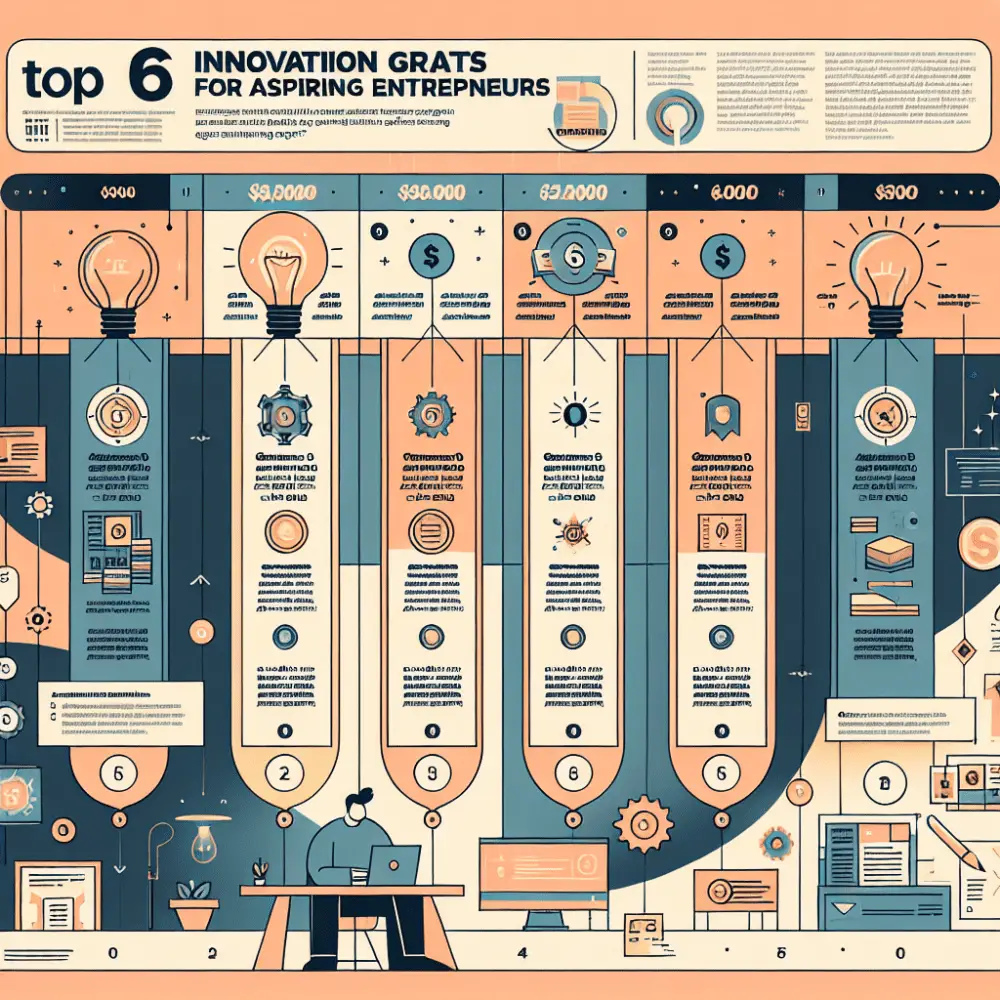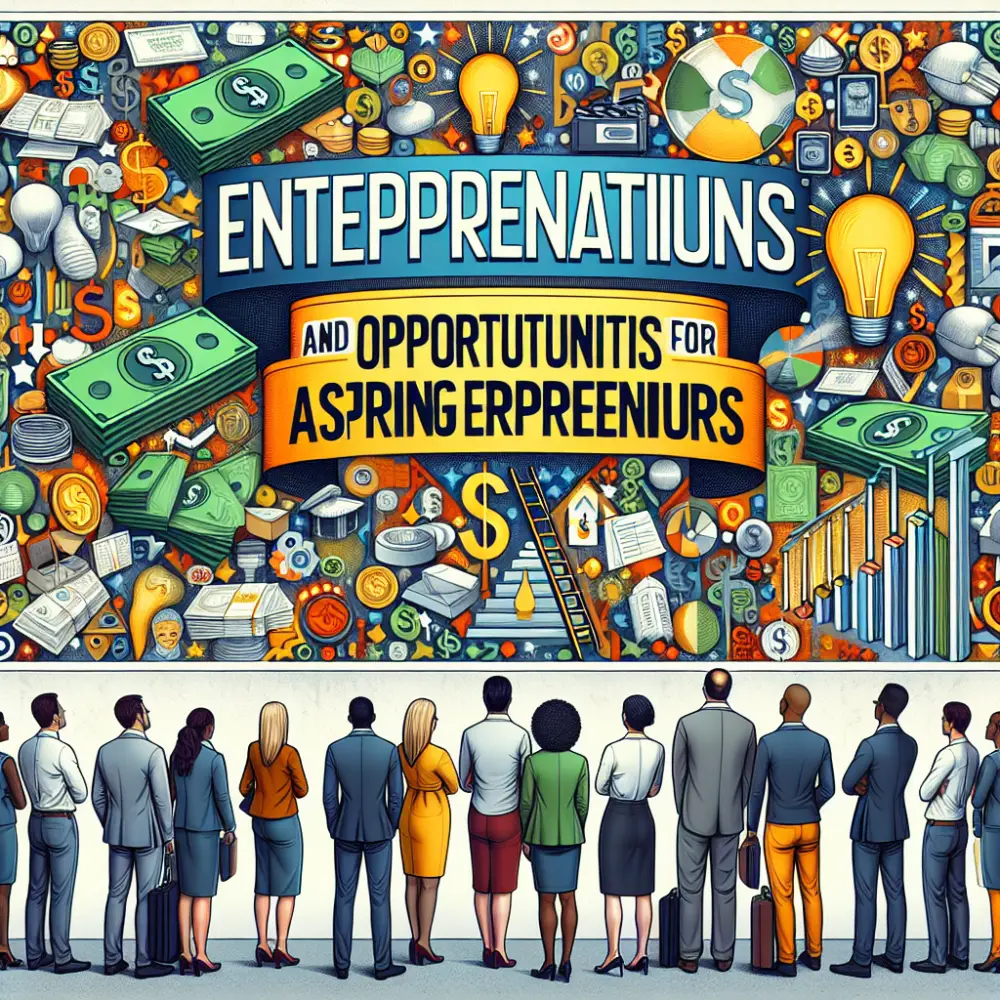
Aspiring entrepreneurs often face the daunting challenge of accessing the necessary funding to bring their innovative ideas to life. In 2025, several grant opportunities are available to help these innovators achieve their dreams. This article reviews the top six innovation grants that can support entrepreneurial ventures and provides essential details to help you make informed decisions.
1. National Science Foundation (NSF) Small Business Innovation Research (SBIR) Program
The NSF SBIR Program has long been a cornerstone in supporting high-tech innovation in the United States. This program targets small businesses with groundbreaking ideas but requires initial funding for research and development. Entrepreneurs can receive up to $1.5 million in phases over time, depending on the progress and potential impact of their projects.
The primary focus of the NSF SBIR Program is on technological innovation across industries such as healthcare, energy, and information technology. Applicants are evaluated on their innovation’s feasibility, commercial potential, and technical merit. The NSF endeavors to foster scientific and technological advancements, paving the way for groundbreaking commercial products and services.
To apply, businesses must be a for-profit entity, have fewer than 500 employees, and be primarily located in the United States. The application process includes a rigorous review to ensure that only the most promising concepts receive support.
2. Google for Startups Accelerator
Entrepreneurship in the digital era often involves developing innovative tech solutions. Google for Startups Accelerator is an ideal program for tech-based startups. This grant not only provides funding but also offers mentorship, networking opportunities, and access to Google’s robust ecosystem of resources.
The goal of the accelerator is to identify startups with high growth potential, particularly in fields like artificial intelligence, machine learning, and data security. Selected startups can receive financial support, technical training, and tailored growth strategies. The focus remains on helping these startups scale their operations and refine their products to meet market demands effectively.
Google for Startups Accelerator emphasizes fostering collaboration among participants, encouraging a supportive community of innovators who can leverage each other’s strengths.
3. EIT Health RIS Innovation Project Grants
In the healthcare sector, innovation is crucial for improving patient outcomes and advancing medical science. The EIT Health RIS Innovation Project Grants are specifically designed to support startups and SMEs (Small and Medium Enterprises) working on healthcare innovations. These grants can provide up to €75,000 for projects that show promise in addressing significant healthcare challenges.
Eligibility criteria for these grants include being based in a country covered by EIT Health’s Regional Innovation Scheme and having a clear plan for product development and commercialization. The selection process involves stringent evaluation based on the project’s potential for societal impact, feasibility, and scalability.
Entrepreneurs seeking support for healthcare-related innovations can find EIT Health RIS grants to be a strategic boost for bringing their ideas to market.
4. DOE Energy Innovation Grants
The Department of Energy (DOE) offers Energy Innovation Grants focusing on projects that aim to enhance energy efficiency, develop renewable energy sources, and address environmental challenges. These grants support breakthrough innovations that contribute to the nation’s energy goals and sustainability efforts.
Applicants can receive up to $2 million to develop their projects, primarily targeting companies that demonstrate strong potential for technological advancement and commercialization. The process includes several phases, starting with concept development, followed by prototyping and pilot testing.
The DOE’s rigorous selection criteria ensure that funded projects align with national priorities and have the potential to make a significant impact on energy consumption and environmental protection.
5. Harvard Innovation Lab President’s Innovation Challenge
Harvard’s President’s Innovation Challenge is a high-profile competition that awards substantial grants to entrepreneurs with transformative ideas. This challenge provides a platform for Harvard students, faculty, and alumni to pitch their innovative solutions and compete for prizes totaling $510,000.
Participants are grouped into categories such as Social Impact, Health & Life Sciences, and Open Track, each with dedicated funding pools. The challenge encourages interdisciplinary collaboration and supports a wide range of innovations, from biotech advancements to novel educational tools.
The competition’s comprehensive mentoring program, access to Harvard’s extensive networks, and substantial financial awards make it a prime opportunity for budding entrepreneurs affiliated with Harvard University.
6. Yale Innovation Summit
Not to be outdone, Yale University also offers substantial support for innovation through its Yale Innovation Summit. This annual event provides a platform for Yale entrepreneurs to showcase their ventures and win funding from a pool of over $400,000.
The summit focuses on fostering entrepreneurial spirit within the academic community, supporting ventures in various stages of development. Participants benefit from expert mentorship, networking opportunities, and feedback from experienced investors and industry leaders.
The competition helps bridge the gap between academic research and commercial enterprise, encouraging participants to develop scalable, impactful solutions.
Comparisons such as “Harvard vs Yale 2023 review: 15 things to consider before choosing” highlight that both universities provide invaluable resources for entrepreneurs, including robust innovation grants and networks to support fledgling businesses.
Additional Insight: Relevant Academic Funding
For those still in academia or pursuing higher educational goals, scholarships can be pivotal. An example includes the “$8000 PhD Scholarship at Capella University,” which is designed to support students pursuing advanced degrees in areas directly linked to business innovation and entrepreneurship. This scholarship can provide not only financial relief but also access to academic resources that can further enhance one’s entrepreneurial abilities.
Conclusion
In 2025, aspiring entrepreneurs have several promising opportunities to secure funding and support for their innovative ideas. The six grants outlined here—from the NSF SBIR Program and Google for Startups Accelerator to the Harvard Innovation Lab President’s Innovation Challenge, and beyond—provide substantial resources and support networks. These grants can help bridge the gap between nascent ideas and successful commercial ventures.
Whether focused on high-tech solutions, healthcare advancements, energy innovation, or other sectors, these grants offer crucial financial backing and strategic guidance. Entrepreneurs are encouraged to explore these opportunities, meet eligibility criteria, and apply to the grants most aligned with their innovation goals. With the right funding and support, the path from concept to market success becomes more navigable, enabling the next generation of entrepreneurs to make their mark.


















I would also like individual grants
To find individual grants, you might want to explore various avenues such as government programs, private foundations, academic institutions, and professional organizations. Here are some options to consider:
Government Grants:
Academic and Research Grants:
Private Foundations:
Professional Associations:
Creative and Artistic Grants:
Travel and Education Grants:
When seeking grants, ensure you carefully read the eligibility criteria and application process. Tailor your application to align with the grant’s goals and objectives, highlighting how your project or need fits their criteria. Leveraging resources like professional networks and grant-writing workshops can increase your chances of success.